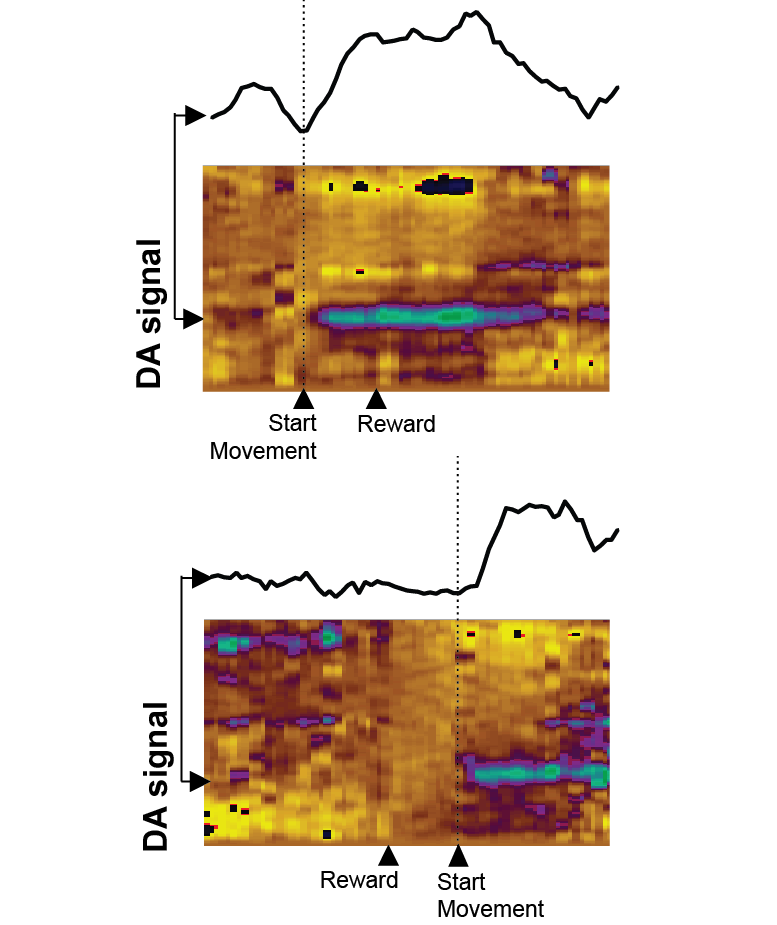Action initiation shapes mesolimbic dopamine encoding of future rewards.
In a part of the brain called the Nucleus Accumbens, release of the chemical dopamine from nerve terminals is believed to signal predictions of future rewards. Dopamine release is also important for movement. Here, we distinguished between expecting reward and moving towards a reward, and show that dopamine release is not only affected by reward prediction but also by starting a correct movement.
It is widely held that dopamine signaling encodes predictions of future rewards and such predictions are regularly used to drive behavior, but the relationship between these two is poorly defined. We found in rats that nucleus accumbens dopamine following a reward-predicting cue was attenuated unless movement was correctly initiated. Our results indicate that dopamine release in this region is contingent on correct action initiation and not just reward prediction.

2016.Cereb. Cortex, 26(10):3977-90.
2019. Cell, 176(6):1393-1406.e16.